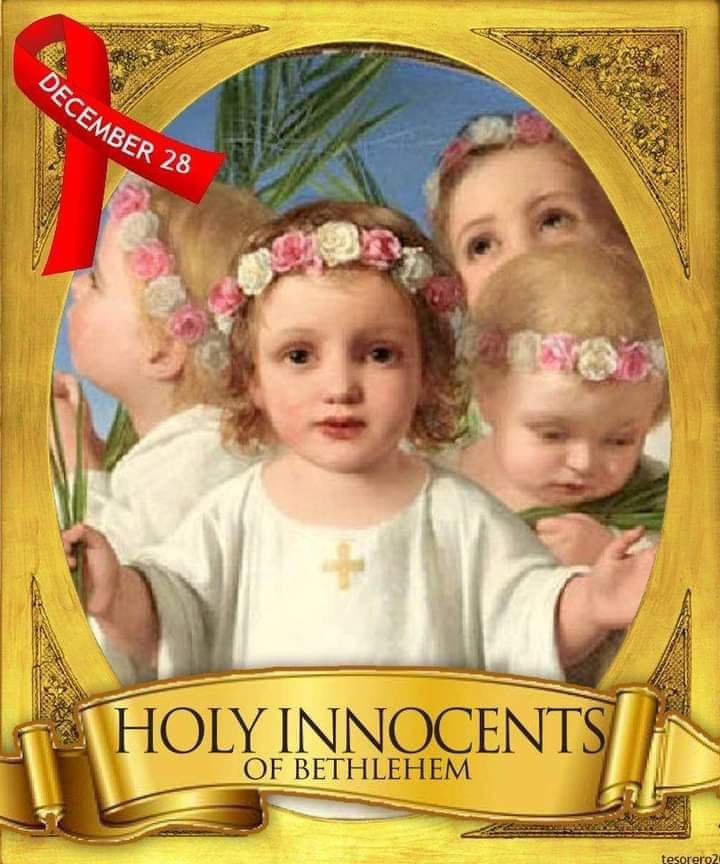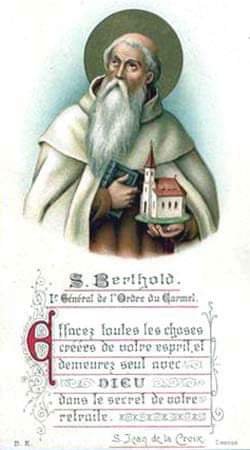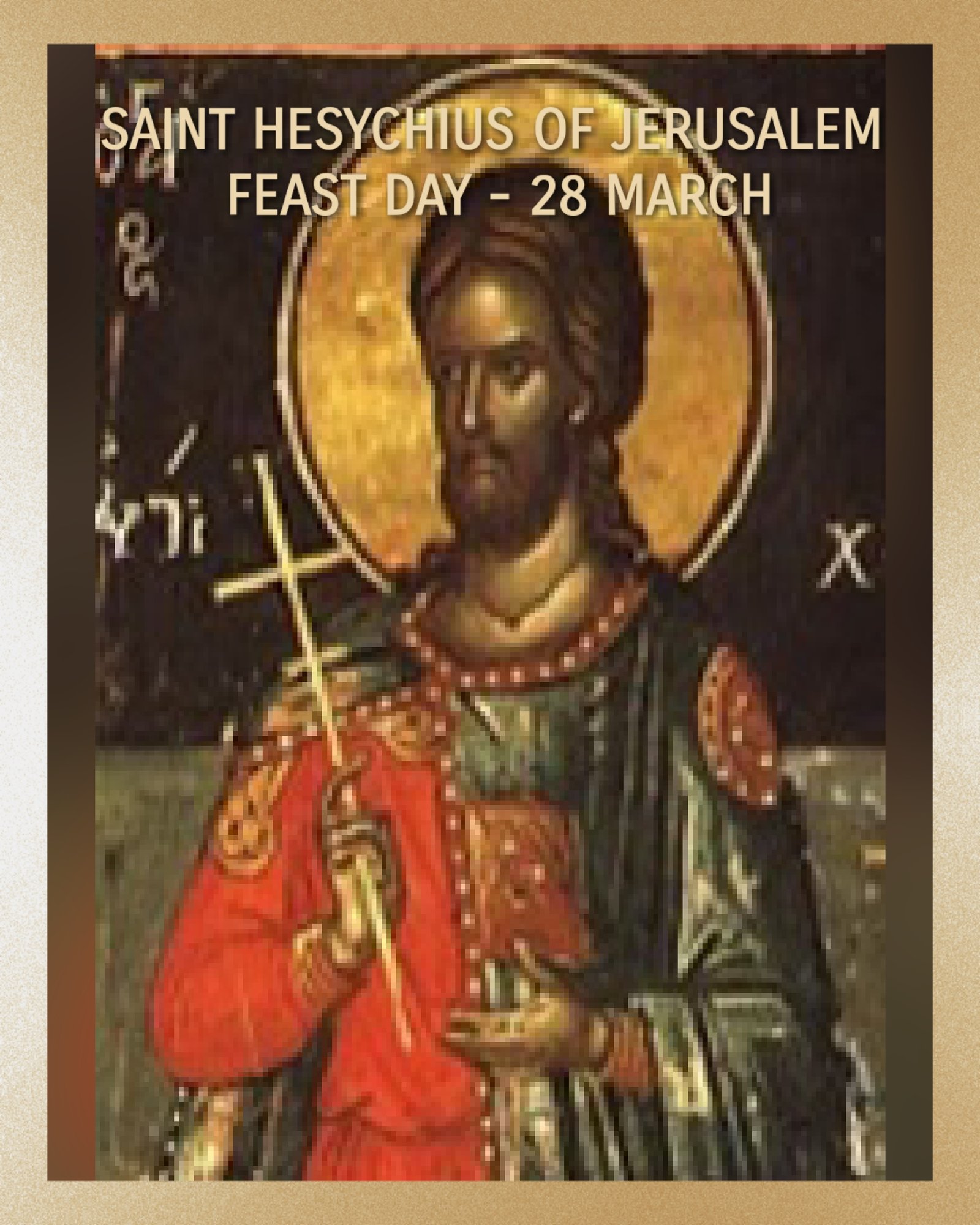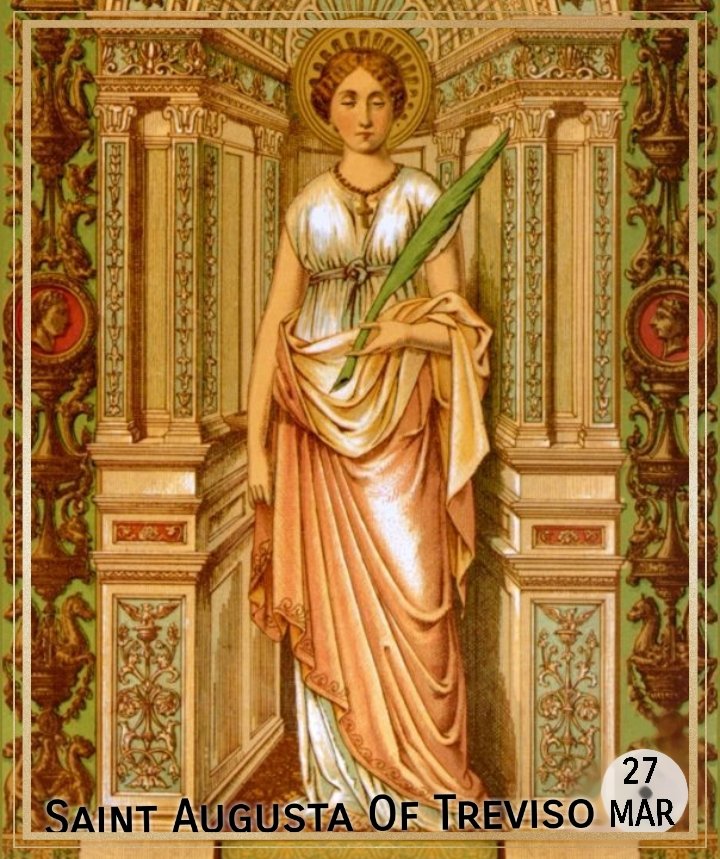FEAST OF THE HOLY INNOCENTS, MARTYRS
FEAST DAY – 28th DECEMBER
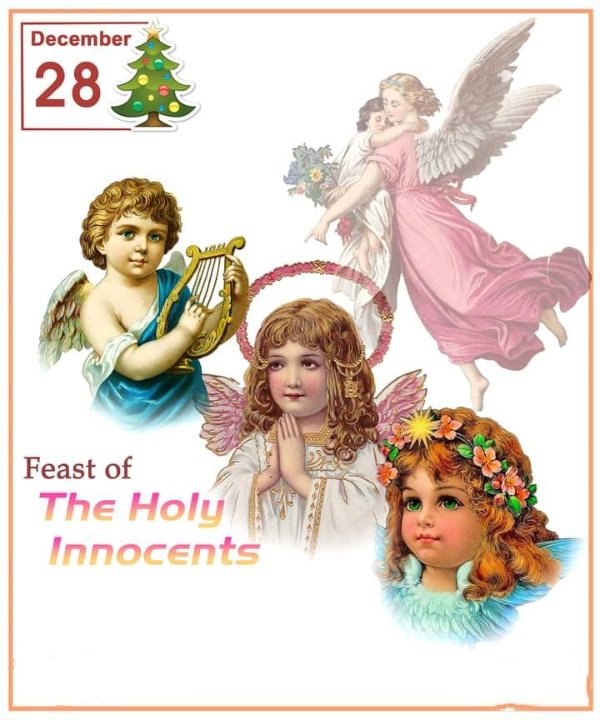
Feast of the Holy Innocents, also called Childermas or Innocents’ Day, is a Christian feast in remembrance of the massacre of young children in Bethlehem by King Herod in his attempt to kill the infant Jesus (Matthew 2:16–18). The feast is observed by Western churches on December 28 and in the Eastern churches on December 29. The slain children were regarded by the early Church as the first martyrs.
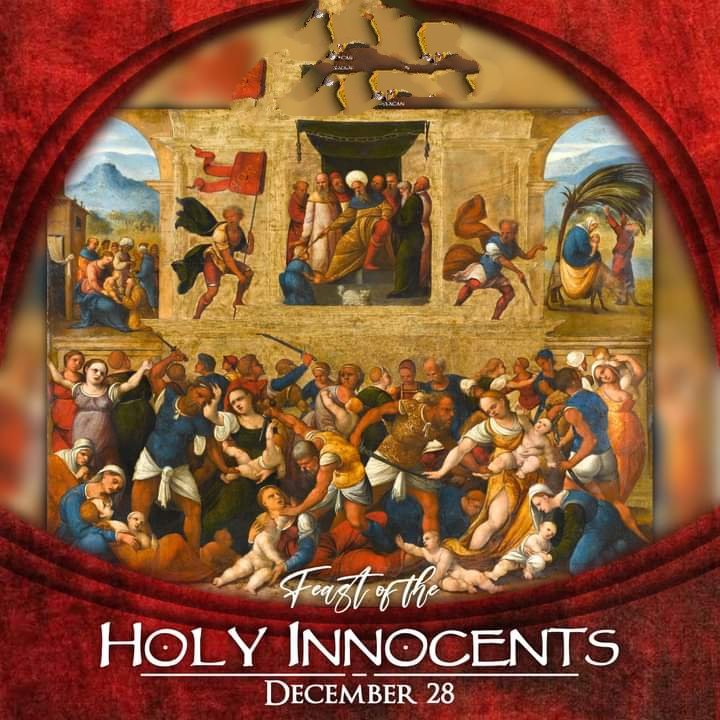
The Holy Innocents, is the feast for all babies. In our own baby is imaged the babes of that dreadful slaughter, and no parent can look at his own baby this day, remember the Innocents, and fail to know the anguish of their parents. It is the Innocents’ parents one remembers when standing over the bed of a fevered child keeping a night’s vigil.
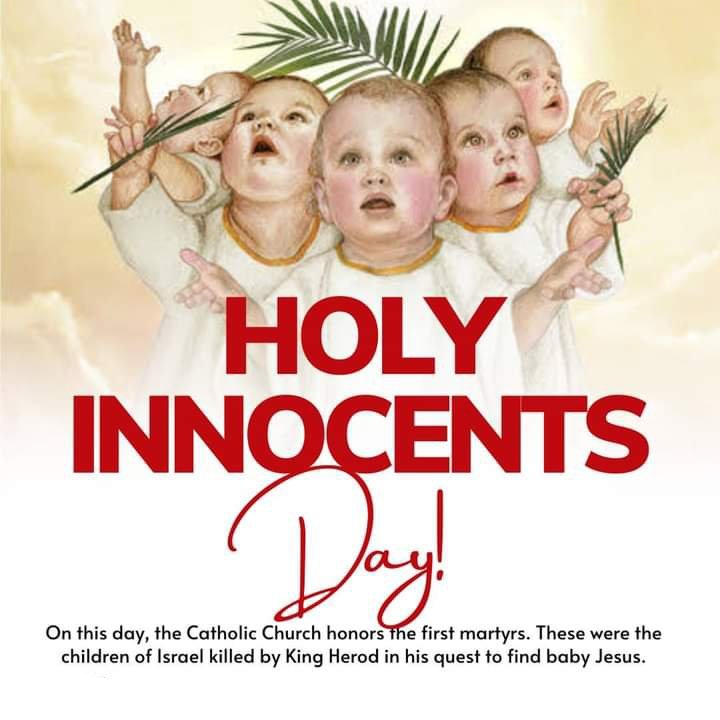
Little ones have always held the center of the stage on the feast of the Holy Innocents, some crowned as kings, some as boy bishops, some in convent schools as superior this day; there were processions and games and feasts all to their choosing. Perhaps we know someone who has no baby and would like to borrow a “holy innocent.” Big families with their wealth of babies might lend one to reign over childless households for a day.

Children are told the story of the martyrdom of the Innocents and the wickedness of Herod who valued life so lightly that he could order the slaying of his whole family, even his three sons. So why not the sons of others? Why not, if necessary, the Son of God?
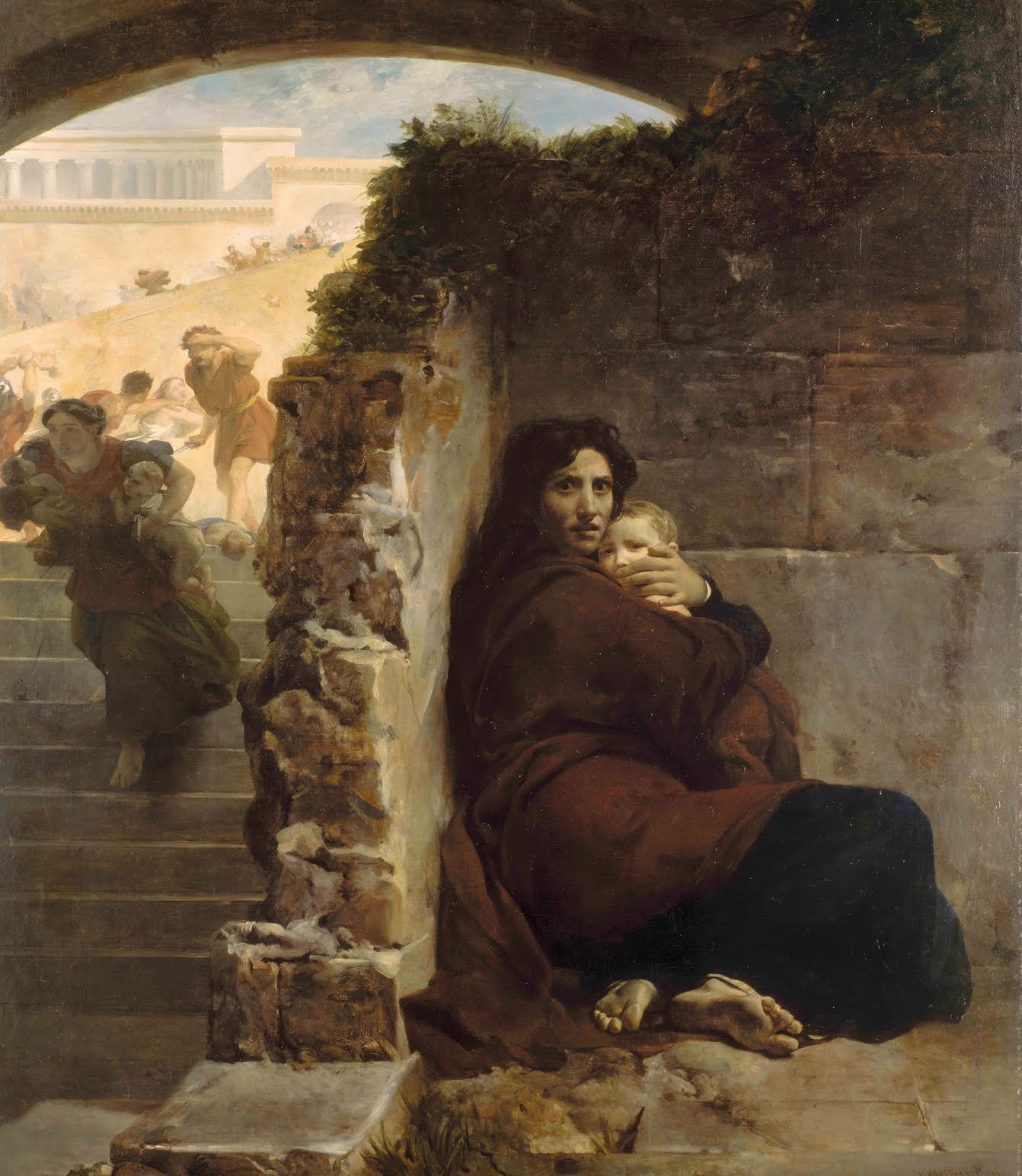
Charles Péguy writes in his Holy Innocents: “That name for which they died, they did not know”. And after many more lines, plunging new thoughts about them, he says: “These Innocents got simply picked up in the scuffle”.
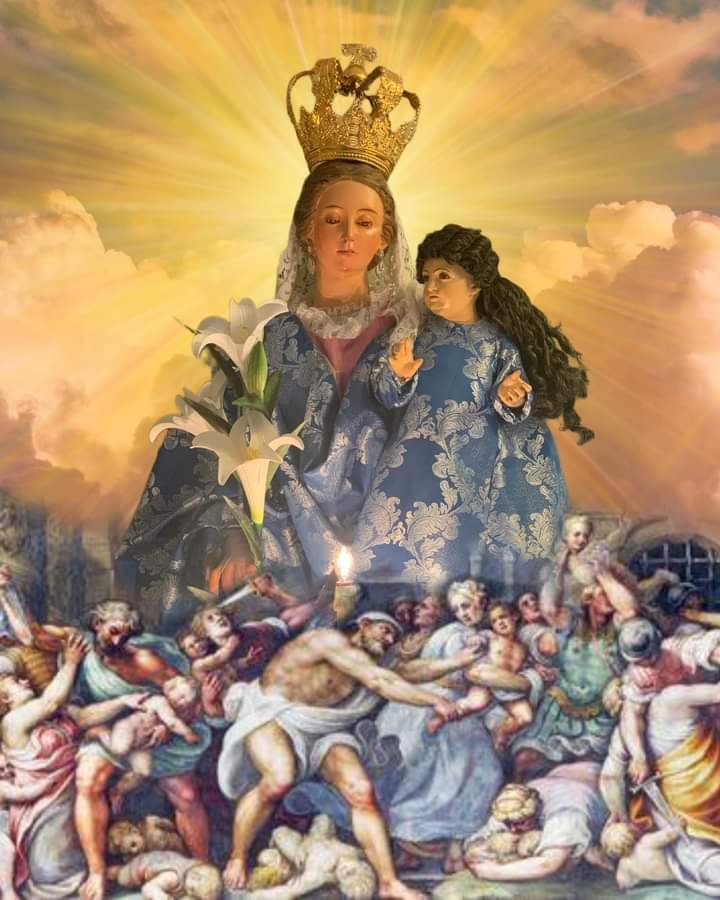
It was one of a series of days known as the Feast of fools and the last day of authority for boy bishops. Parents temporarily abdicted authority. In convents and monasteries the youngest nuns and monks were allowed to act as abbess and abbot for the day. These customs, which were thought to mock religion, were condemned by the Council of Basel (1431).
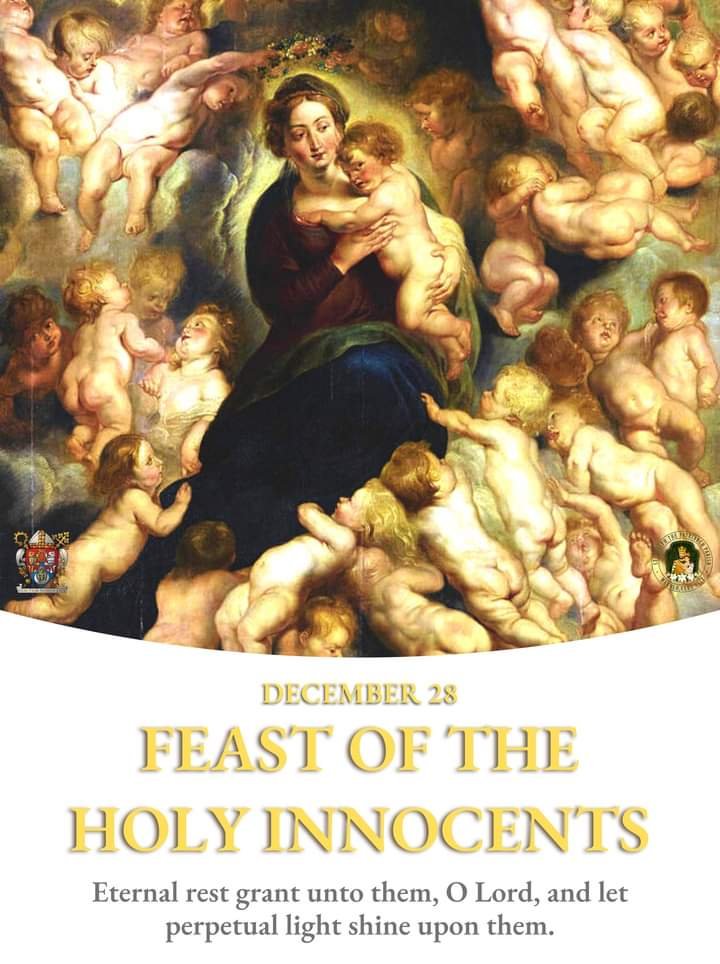
In medieval England, children were reminded of the mournfulness of the day by being whipped in bed in the morning. This custom survived into the 17th century. The day is still observed as a religious feast day and, in Roman Catholic countries, as a day of merrymaking for children.
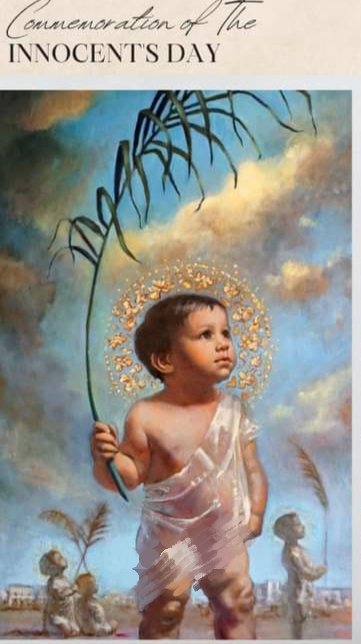
Some churches omit both the Gloria and the Alleluia of the Mass, in honour of the grieving mothers of Bethlehem, unless the feast falls on a Sunday. There is a traditional Blessing of Children given by the priest in church on this day.

PRAYER
O Lord, Jesus Christ, Who didst embrace and lay thy hands upon the little children when they came to thee, and didst say to them: “Suffer little children to come unto me, and forbid them not, for the kingdom of heaven is theirs, and their angels always see the face of my Father,” — look with a Father’s eye upon the innocence of these children and their parents’ devotion, and bless them this day through our ministry. By thy grace and goodness let them make progress in desiring thee, loving thee, fearing thee, obeying thy commandments — thus coming to their destined home, through thee, Saviour of the world, Who with the Father and the Holy Spirit livest and reignest, God, forever and ever. Amen


